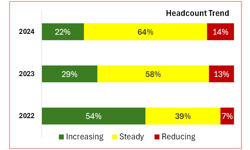
Cruel to be kind
At least once every year, some old colleague from my magazine publishing past approaches me for my views on their plans to launch a magazine.
Of course, they don’t really want my views. When people say they want your views, what they really want is your support. They want you to tell them that their magazine is a good idea and that it’s bound to work.
They won’t pay attention to anything you might say to the contrary because they have already anticipated a negative response and factored it in to the myth in which they do battle for their plucky idea in the face of a world which simply refuses to understand.
In this, they are very like those musicians who send you their demo tapes in the hope that you’ll “give it a listen and maybe give some feedback”. If you get back to these musicians and tell them the truth, which is that you found their efforts underwhelming, they write you off as a bastard.
If you get back to them and say anything even slightly favourable, they think they can henceforth count on you as a member of their team and you will immediately do something to help make them successful.
When the novelist Philip Roth died last year, the story did the rounds of the young novelist who was waiting tables and approached the great man with a copy of his first book. Roth was civil and sympathetic. In fact, he was so sympathetic to the man’s plight that he begged him to stop right there and never attempt to publish another word. What he was in effect saying is, “you’re setting yourself up for a life of bitter disappointment if you continue on this path. Please do something that will make you happy”.
To people who have not earned their living with what we used to call “his pen” Roth’s reaction seems so mean. I only wish I had Roth’s nerve.
It’s getting harder and harder to tell people the brutal truth and have them accept it. In a society which likes to peddle the myth that all you have to do is follow your dream, never let anyone put you off and it will some day come true, it seems impossible.
The “follow your dream” line is a terrible lie. Just because you keep following your dream does not mean it’s going to come true. I know thousands of musicians who keep on trying in their forties, fifties and sixties in the belief that somebody is eventually going to recognise their talent. For 99.9% of them, it won’t happen.
And despite the mythology, it’s never to do with how badly they wanted it. The team who lost tried just as hard, wanted it as badly and dreamed every bit as big as the side who won. There have to be more losers than winners. This is a form of gambling. That’s what makes the spoils so attractive for the handful who happen to end up on the winning side, most of whom come to realise late in life just how lucky they were to get away with it.
In the end, the best grounds for supporting what I might call the Roth View is that it’s up to the person who’s on the receiving end of it to either absorb the advice or not. The likelihood is it will be the latter. If you are going to be put off by whatever any one individual, however eminent, says about your prospects, you’re not going to make it anywhere. It’s like Laurence Olivier said about actors. If you want to be one, you are one. If you’re not one, you didn’t want it badly enough in the first place.
It’s getting harder and harder to tell people the brutal truth and have them accept it.
Community first
Having said all that, there is one thing I say to anyone who asks about the advisability of launching an actual magazine in 2019, particularly those mad fools who think they might get people to pay for it. It’s this. You can no longer use media to build a relationship but you might be able to use a relationship to build media. That means you can only sell things to people with whom you have some kind of relationship, preferably people that you actually meet face to face.
Back in the day, communities formed around magazines. Nowadays your best hope is that a magazine might attach itself to a community. If that community gathers and you know where they are, they might pay money for the benefits of that community or a badge of belonging such as a magazine.
It’s community first and everything else afterwards. The layout on page 42 is not going to make any difference, nor the right picture on the cover. What might make a difference is if you can sit down with your people and respond to their interests and maybe provide a magazine which they regard as some kind of valuable takeaway.
The problem is that the kind of people who approach me with ideas for launching magazines are the kind of people who are attracted by temperament to the trade because they prefer the idea of sitting in a room chiselling away at a perfect headline to the idea of getting out there in the world and rounding up people.
The ancient function of the magazine editor was to stand before a curtain behind which were arrayed the riches of the universe and to parcel out those riches one by one to the poor benighted souls who were down there in the stalls.
The function of the modern magazine editor is to greet people at the door, to mingle among the gathering with a dish of peanuts, to introduce people to each other, to facilitate conversational exchanges and to make sure everybody knows the date of the next gathering. This calls for some of the old skills a lot and other ones hardly at all.
A recent edition of Radio Four’s The Bottom Line had Evan Davis quizzing Wolfgang Blau of Condé Nast and Terri White of Empire in an effort to find out whether magazines had a future. All programmes like this contain a certain amount of evasion and whistling to keep the spirits up but there were some good points made, notably Blau’s that the business of buying a subscription needs to become as frictionless as an Amazon click and that print magazines must be “a physical anchor” in a world where everything else is digital.
To which I would add, the magazine used to be the starting point of the relationship. It now, like a wedding ring, should come at the end.
Back in the day, communities formed around magazines. Nowadays your best hope is that a magazine might attach itself to a community.
Council of calm
I’ve come to the end of my six-year term as a member of the Council of the Advertising Standards Authority. In this capacity, I’ve learned more about the chemical composition of drain cleaners, about the things you are and are not allowed to say when making claims for cosmetics and the percentage of holidays which have to be available to customers at a certain price before you are allowed to advertise it as a sale than I would have ever thought it was possible to know.
The ASA exists to make sure that the public can trust what they’re told in advertising. This has to be in the interests of the public, the advertisers and anybody who benefits from serving either. It’s particularly important at a time when digital has changed people’s expectations of advertising and also blurred the division between commercial messages and what used to be called editorial.
Above all, what I’ve learned is that there is no more professional and fair-minded body than the ASA. Chris Smith was the chairman for most of my time and he used to recall how surprised he was on taking on the job and attending his first council.
“People listened to each other respectfully,” he recalled. “What’s more, they respected opinions which weren’t the same as their own and they sometimes changed their views as a result of what somebody else said. To me, this was amazing. I’d spent most of my life in the Parliamentary Labour Party and I’d never come across anything like it.”
Long may they flourish.
I’d spent most of my life in the Parliamentary Labour Party and I’d never come across anything like it.










